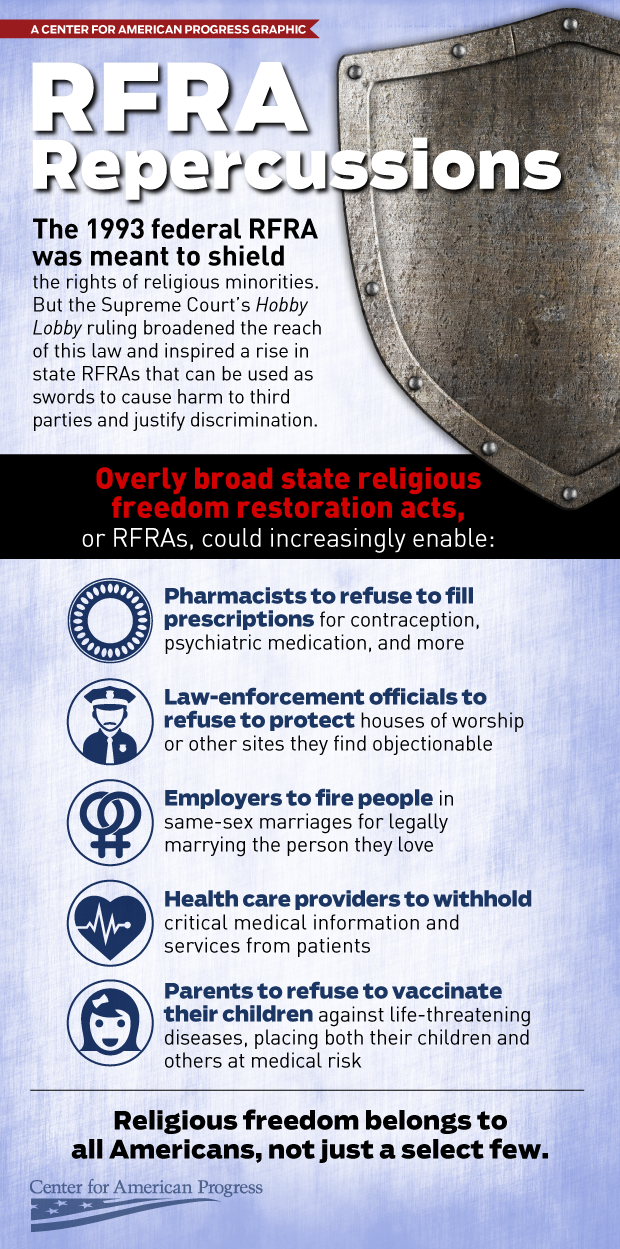The federal Religious Freedom Restoration Act, or RFRA, passed in 1993 with broad bipartisan support and an aim to protect the right of Americans to freely believe and worship according to their consciences. Last June, the Supreme Court’s Burwell v. Hobby Lobby ruling took a stark detour from the original intent of the federal RFRA. The Court’s split decision allowed the religious beliefs of the owners of closely held for-profit corporations to trump those of their employees. Since then, conservative legislatures in states such as Georgia, Indiana, and North Carolina have introduced their own RFRAs that significantly broaden the reach of the federal law.
The religious freedom that the nation was founded upon does not allow businesses, corporations, or individuals to use their religious beliefs to cause harm or impose unnecessary burdens on others. Overly broad state RFRAs threaten true religious freedom, which safeguards the right to religious belief or no religious belief for all Americans. The state RFRAs lack provisions to ensure that they will not use religion as justification to discriminate and pose potential harms that could affect everyone.

Donna Barry is the Director of the Women’s Health and Rights Program at American Progress. Billy Corriher is the Director of Research for Legal Progress at the Center. Carolyn Davis is a Policy Analyst for the Faith and Progressive Policy Initiative at the Center. Chester Hawkins is the Senior Graphic Designer at the Center. Lauren Kokum is the Special Assistant for the Faith and Progressive Policy Initiative at the Center. Sarah McBride is a Research Associate for LGBT Progress at the Center.